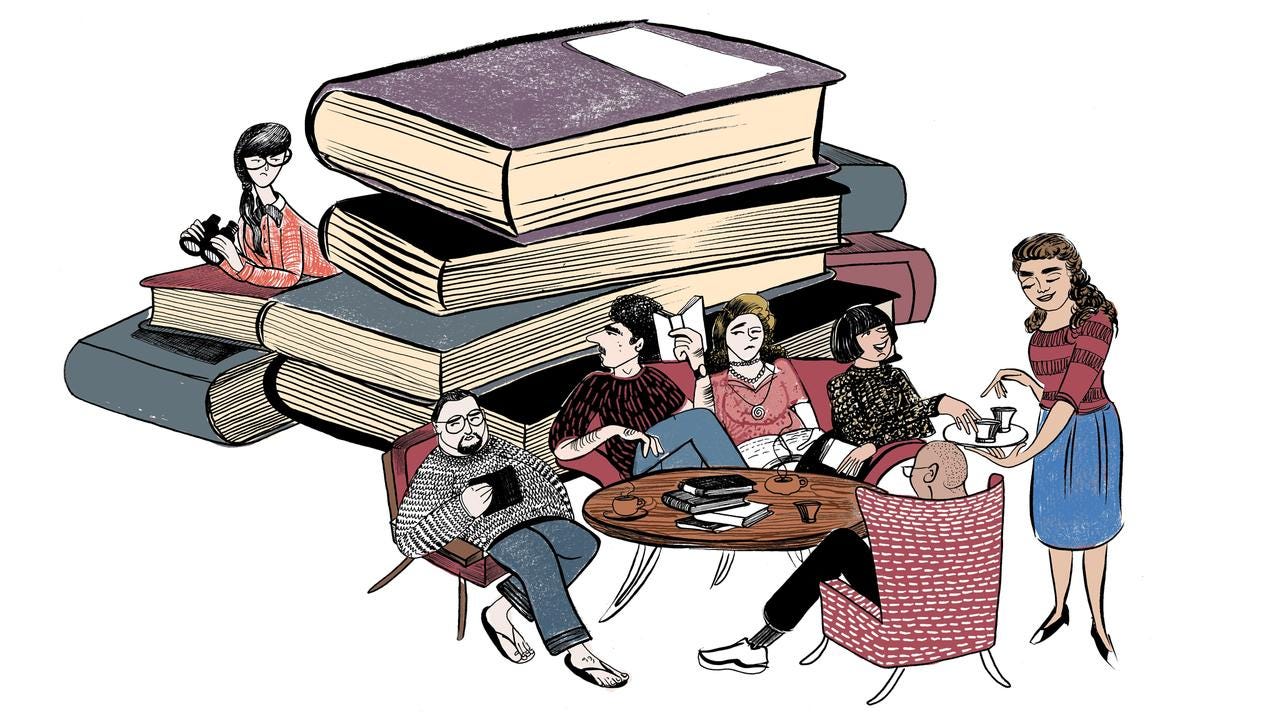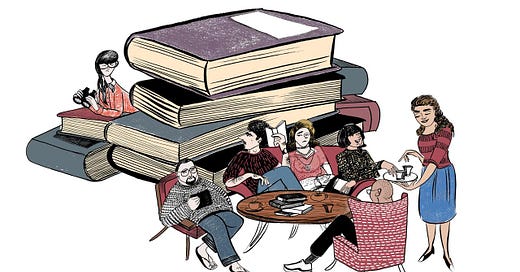I Wrote the Book on Getting Kicked Out of Book Clubs
I was a lonely writer in a strange new city. The Internet told me joining a book club would solve all my problems. But the Internet has never had to read historical romance about Hitler or earnestly discuss “The Help” with joyless Midwestern housewive

Illustrations by Leslie Agan | Edited by Lilly Dancyger
I walked toward the back of the Barnes & Noble, through fiction, through mystery, and then to the table set up behind the religion section. A giant display of graphic novels lined the back wall, framing the man who sat at the head of the table. He wore a shirt that read, “Resistance is Futile.”
I stopped. All of the members of the book club I was there to meet were men. They were all middle aged. If I turned toward the Joel Osteen book display and pretended to be reverent, maybe I could sneak away. I had graduated from college only eight months prior with an English degree and the vague notion of becoming a writer. Thanks to my liberal arts education, I was prepared to write, but I had no idea how to actually get published. I found myself Googling “how to be a writer” at two a.m. The first result was an article giving me good advice, like “write” and “join a writing group or book club” so I could “meet other writers and learn from …
Keep reading with a 7-day free trial
Subscribe to Narratively to keep reading this post and get 7 days of free access to the full post archives.



